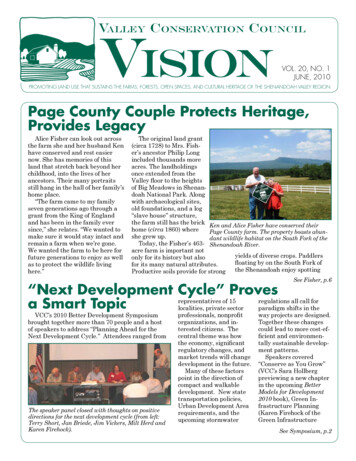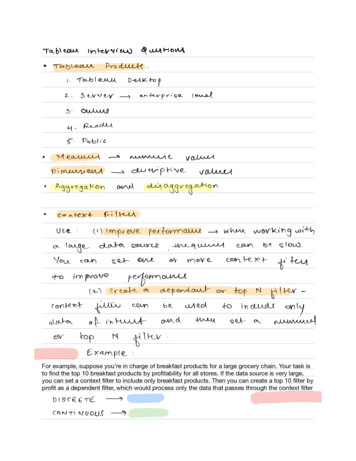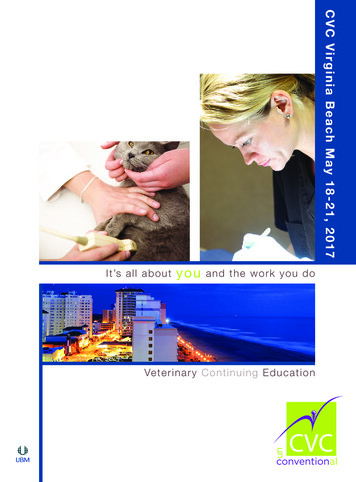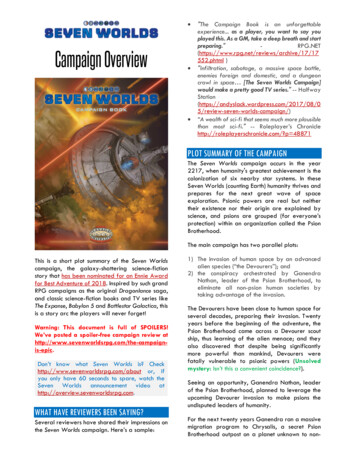
Transcription
This booklet provides you with a quick and easyway to review and reinforce what you have learnedduring your audio course. The booklet should beused after you have begun working through the CDsas it is not designed to teach you German by itself.LearnGermanWITHPaulNobleReview booklet
This booklet provides you with a quick and easyway to review and reinforce what you have learnedduring your audio course. The booklet should beused after you have begun working through the CDsas it is not designed to teach you German by itself.LearnGermanWITHPaulNobleReview booklet
Collins Learn German with Paul NobleHarperCollins Publishers77-85 Fulham Palace RoadHammersmithLondonW6 8JBwww.collinslanguage.comFirst published 2012Reprint 10 9 8 7 6 5 4 3 2 1 0 Paul Noble 2012ISBN 978-0-00-748626-7All rights reserved.Typeset by Davidson Publishing SolutionsProduced in China by Leo Paper Products Ltd.Other languages in theCollins with Paul Noble series:French, Spanish and Italian
ContentsThe Paul Noble Method5Find out more about Paul, his unique method and why it makes learningGerman so very easy.How to use this bookletFind out how this booklet can help you as you progress through the course.7Creating German wordsThis is a light and fun way to begin your German review and expand yourvocabulary in German. It shows you how to change various English wordsinto German ones so that, by using this very simple tool, you can quicklydevelop a substantial German vocabulary – you will find it requires very littleeffort or time!8Core course reviewHere you can review all the key structures and tenses you learnt during thecourse in a quick and easy way.11The present12The future23The past26“The” and “A”29Travelling in a German-speaking countryThis is where you have a chance to use what you have learnt to deal withthose everyday situations you are likely to come across when travelling ina German-speaking country.45At the hotel46Finding a campsite47At the café48Noble German bklet internals.indd 330/05/2012 18:34
At the restaurant49The tourist office / Asking directions50Taking a train51A brief encounter53At the bakery54At the pharmacy55Seeing a doctor56At a glanceHere you will find a quick snapshot of key verbs, numbers and theGerman alphabet, to help round off your knowledge of German.Essential verbs: A snapshot57Numbers60The alphabet63CD track listing65Noble German bklet internals.indd 430/05/2012 18:34
The Paul Noble MethodOver the years, I have taught many, many people. Curiously, they have each had muchthe same story to tell regarding their previous experiences of language learning. As aresult, these days, when I first start a teaching session, I ask my students to raise theirhands if they have had any of the following experiences.Raise your hand, I say: If you studied a language for several years at school but came outunable to really say anything. If you have ever bought a language course and given up around pagethirty, somewhere around chapter two. If you have ever felt more confused by a teacher’s explanation of thelanguage than by the language itself. If you have ever been amazed by just how closely grammar booksresemble furniture assembly instructions. If you have ever felt that you may in fact be more or less incapableof learning a foreign language.Invariably, all the students soon have at least one hand in the air – and they laugh.They laugh because for some reason our language-learning experiences tend to bevery similar and, sadly, these similar experiences tend not to be very good ones.My own initial experiences of language learning were also uncannily similar to thosedescribed above. In fact, when I ask my students these questions, my own hand is thefirst to go up – and it stays up until we have gone through them all.However, these less than positive experiences have had an upside both for myself andfor those individuals I have taught because they, along with a number of other factors,have helped inform and shape the method that will be used during this course.Using this method, you will learn how to communicate in German and how toformulate your own ideas and thoughts using German.5Noble German bklet internals.indd 530/05/2012 18:34
The Paul Noble MethodAs you learn with it, you will quickly discover that I do not use complicated grammaticalexplanations at all, and I will not ask you to memorize long lists of vocabulary – the waythe course is structured will by itself ensure that you remember what you are taught.Instead, through your interaction with the CDs, I will lead you through the Germanlanguage, enabling you to build up complex sentences by yourself, step by step, so thatyou are actually speaking independently in German by the end of the course. And this isregardless of how little, or how much, you know when you begin.You will also discover that the language I teach is designed to be adaptable, so thatyou will be able to use it just as easily for holidaying in a German-speaking country asfor living or working there; it will be just as easy to use it to order a coffee as to hold aconversation with the waiter who brings it to you. And, again, all of this regardless ofhow little, or how much, you know when you begin.At the time of writing, this method has already proved extremely successful with a verygreat many students, including hundreds of so-called “no-hopers”. Interestingly, notone of these students failed to learn using this method. It is these many success cases,letters of thanks – and even the occasional hug – that have made teaching languagesso very worthwhile for me and it is this which has persuaded me to publish my courseswith Collins.I anticipate and hope that this course will be as effective for you as it has been for somany of my other students.Paul NobleHead of the Paul Noble Language Institute6Noble German bklet internals.indd 630/05/2012 18:34
How to use this bookletThis booklet has been designed to provide you with a quick and easy way to reviewand reinforce the key vocabulary, structures and contents of your Paul Noble MethodGerman course.Although the core part of your learning will take place via your use of the accompanyingcourse CDs, we have also included this booklet in order to provide you with a quickreference guide to the language, as well as a way to begin to get to grips with bothreading and writing German, should you wish to do so.It is worth noting that this booklet should be used after you have begun workingthrough the accompanying CDs. It will serve as excellent reinforcement, guidance andreview material but is not designed to teach you German by itself. This is what the CDswill do – and very rapidly too. After you have begun working through the CDs, you willfind this booklet to be an extremely useful review and reference resource but you muststart by listening to the CDs first.So, if you haven’t done so already, go and unwrap CD 1 and get started. You’re about tofind out just how good a course this is!7Noble German bklet internals.indd 730/05/2012 18:34
Creating German wordsUse these conversion techniques to create hundreds of German wordsout of English.Many words endingin. in Englishbecome.in GermanExamplesionstay the sameInformationSituationPortionantstay the samearroganttolerantRestaurantentstay the sameintelligentprominentExperimentalstay the sameformalnormalidealorstay the sameProfessorPastorMotoriststay the sameTouristRealistOptimistumstay the sameMaximumMinimumMuseumadestay the sameBlockadeParadeSerenade8Noble German bklet internals.indd 830/05/2012 18:34
Creating German wordsMany words endingin. in Englishbecome.in GermanExamplesic/icalischpolitical politischtypical typischromantic romantischiveivnegative negativintensive intensivimpulsive impulsivtytätreality Realitätidentity Identitätmentality Mentalitätamammgram Grammanagram Anagrammdiagram Diagrammureurcure Kurnature Natursculpture Skulptursmsmusenthusiasm Enthusiasmusoptimism Optimismuspessimism Pessimismusanceanzignorance Ignoranztolerance Toleranzelegance Eleganzenceenzintelligence Intelligenzturbulence Turbulenzconference Konferenzat / ateatprivate privatduplicate Duplikatdiplomat Diplomat9Noble German bklet internals.indd 930/05/2012 18:34
Creating German wordsUse these consonant swapping techniques to transform Anglo-SaxonEnglish words into German.An English letter.is often a.in GermanExamplesdthard hartcold kaltto drink trinkenthdthing Dingthorn Dornto thank dankenkchbook Buchto make machento break brechenygto say sagento lay legento fly fliegenghtchtsight Sichtlight Lichtdaughter Tochterppfplaster Pflaster(at or near thepan Pfannebeginning of a word)pepper Pfefferpf(in the middle or at theship Schiffend of a word)vhelp helfenb(in the middle or at theto have habento live lebenend of a word)tsharp scharfto give gebenswhat? was?(in the middle or at thewater Wasserend of a word)better besser10Noble German bklet internals.indd 1030/05/2012 18:34
Core course reviewThe best way to use this part of your booklet is to start by reading through a page,looking at both the English and German. Then go back to the beginning of that samepage and, while covering the German side of the text, translate the English intoGerman – just as you did when you listened to the course CDs.Once you can get 90% of a page’s content correct, move on to the next page andfollow the process again. By doing this, you will quickly recall and reinforce what youlearnt with the CDs.11Noble German bklet internals.indd 1130/05/2012 18:34
The presentUsing “it is”Many words ending in -ic and -ical in English end in -isch in German.fantasticromantictypicalIt isIt is fantastic.It is romantic.It is typical.dramaticIt is dramatic.exoticIt is exotic.democraticIt is democratic.problematicIt is problematic.It is not / It isn’tIt isn’t problematic.It isn’t democratic.It isn’t romantic.butIt is exotic but it isn’t romantic.practicalIt’s practical.It isn’t practical.fantastischromantischtypischEs istEs ist fantastisch.Es ist romantisch.Es ist typisch.dramatischEs ist dramatisch.exotischEs ist exotisch.demokratischEs ist demokratisch.problematischEs ist problematisch.Es ist nichtEs ist nicht problematisch.Es ist nicht demokratisch.Es ist nicht romantisch.aberEs ist exotisch, aber es ist nichtromantisch.praktischEs ist praktisch.Es ist nicht praktisch.12Noble German bklet internals.indd 1230/05/2012 18:34
The presentTalking about what you can, would like to andmust docanI canto beginI can begin.I can notI cannot begin.She canto campShe can camp.She cannot camp.to parkShe cannot park.She can park.He canHe can park.to comeHe can come.todayHe can come today.You can (informal)You can come today. (informal)You cannot come today. (informal)Can you? (informal)Can you come today? (informal)You can ( formal)Can you? ( formal)tonightCan you come tonight? ( formal)to goCan you go tonight? ( formal)Ich kannbeginnenIch kann beginnen.Ich kann nichtIch kann nicht beginnen.Sie kanncampenSie kann campen.Sie kann nicht campen.parkenSie kann nicht parken.Sie kann parken.Er kannEr kann parken.kommenEr kann kommen.heuteEr kann heute kommen.Du kannstDu kannst heute kommen.Du kannst nicht heute kommen.Kannst du?Kannst du heute kommen?Sie könnenKönnen Sie?heute NachtKönnen Sie heute Nachtkommen?gehenKönnen Sie heute Nacht gehen?13Noble German bklet internals.indd 1330/05/2012 18:34
The presentNOTE! As you may have noticed above, there is more than one word for “you” inGerman.“Sie” is the formal word for “you” in German. It can be used when talking to one ormore persons and is what you will use when you first meet someone.“Du” is the informal word for “you” and is used with family members, close friends andfor talking to children. English speakers often do not know when it is appropriate to startusing “du” with German speakers. The rule-of-thumb is: don’t use it first! Wait until anative speaker initiates it with you and then it should be alright to use it back.They canCan they?Can they go tonight?They cannot go tonight.No.No, they cannot go tonight.We canWe cannot go tonight.this eveningWe cannot go this evening.Can we?Can we go this evening?Sie könnenKönnen sie?Können sie heute Nacht gehen?Sie können nicht heute Nachtgehen.Nein.Nein, sie können nicht heuteNacht gehen.Wir könnenWir können nicht heute Nachtgehen.heute AbendWir können nicht heute Abendgehen.Können wir?Können wir heute Abendgehen?would likeI would liketo danceI would like to dance.to dance hereI would like to dance here.to drinkIch möchtetanzenIch möchte tanzen.hier tanzenIch möchte hier tanzen.trinken14Noble German bklet internals.indd 1430/05/2012 18:34
The presentto drink hereI would like to drink here.She would likeShe would like to drink here.hier trinkenIch möchte hier trinken.Sie möchteSie möchte hier trinken.to drink itShe would like to drink it.She wouldn’t like to drink it.He would liketo doto do itHe would like to do it.to bringto bring itHe would like to bring it.He would like to bring it but he can’tdo it today.You would like (informal)Would you like? (informal)Would you like to bring it? (informal)Would you like to do it? (informal)this morningWould you like to do it this morning?(informal)You would like ( formal)Would you like? (formal)Would you like to do it this morning?(formal)to seeWould you like to see it this morning?(formal)tomorrowWould you like it see it tomorrow? (formal)They would likeThey would like to see it tomorrow.They would like to see it tomorrow but it isn’tpractical.Would they like?es trinkenSie möchte es trinken.Sie möchte es nicht trinken.Er möchtetunes tunEr möchte es tun.bringenes bringenEr möchte es bringen.Er möchte es bringen, aber erkann es nicht heute tun.Du möchtestMöchtest du?Möchtest du es bringen?Möchtest du es tun?heute VormittagMöchtest du es heuteVormittag tun?Sie möchtenMöchten Sie?Möchten Sie es heute Vormittagtun?sehenMöchten Sie
Using this method, you will learn how to communicate in German and how to formulate your own ideas and thoughts using German. NNoble_German_bklet_internals.indd 5oble_German_bklet_internals.indd 5 330/05/2012 18:340/05/2012 18:34. 6 The Paul Noble Method As you learn with it, you will quickly discover that I do not use complicated grammatical explanations at all, and I will not ask you to .











